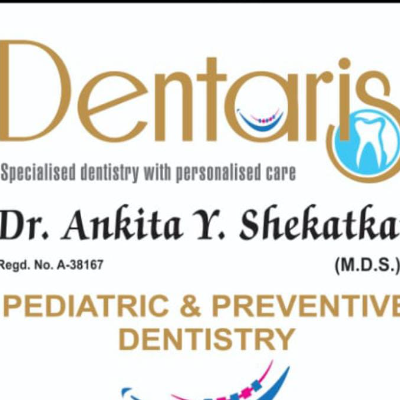+918048036116

This is your website preview.
Currently it only shows your basic business info. Start adding relevant business details such as description, images and products or services to gain your customers attention by using Boost 360 android app / iOS App / web portal.
Description
Dental implants are a modern and effective solution for replacing missing teeth. They provide a long-term, stable, and natural-looking option that mimics the function and appearance of natural teeth. Here's a detailed overview of dental implants: ### *What Are Dental Implants?* - *Definition:* A dental implant is an artificial tooth root made of titanium or other biocompatible materials that is surgically placed into the jawbone. Once the implant integrates with the bone, it serves as a sturdy foundation for a replacement tooth, such as a crown, bridge, or denture. - *Purpose:* Dental implants are used to replace one or more missing teeth, providing both functional and aesthetic benefits. They can support a single crown, a dental bridge, or even full dentures. *Benefits of Dental Implants:* - *Natural Look and Feel:* Implants closely resemble natural teeth in both appearance and function, providing a comfortable and aesthetic solution. - *Durability:* With proper care, dental implants can last a lifetime, making them a long-term investment in oral health. - *Improved Oral Function:* Implants restore full chewing power, allowing patients to eat a wide variety of foods without discomfort. - *Bone Preservation:* Implants stimulate the jawbone, preventing the bone loss that typically occurs when teeth are missing. - *No Impact on Adjacent Teeth:* Unlike traditional bridges, implants do not require the alteration of neighboring teeth, preserving natural tooth structure. - *Enhanced Comfort:* Since implants become part of the jawbone, they eliminate the discomfort often associated with removable dentures. ### *Risks and Considerations:* - *Surgical Risks:* As with any surgery, there are risks of infection, nerve damage, or complications related to anesthesia. - *Bone Loss:* If osseointegration fails, the implant may not fully bond with the bone, leading to loosening or failure. - *Cost:* Dental implants can be more expensive than other tooth replacement options, although their durability often makes them more cost-effective in the long run. - *Healing Time:* The entire implant process can take several months due to the healing time required between steps. ### *Post-Procedure Care:* - *Oral Hygiene:* Good oral hygiene is essential to maintain the health of the implant and surrounding tissues. This includes regular brushing, flossing, and routine dental check-ups. - *Diet:* Patients should follow a soft food diet immediately after surgery and gradually return to normal eating habits as healing progresses. - *Avoid Smoking:* Smoking can impair healing and increase the risk of implant failure. ### *Alternatives to Dental Implants:* - *Dental Bridges:* A bridge is used to replace one or more missing teeth by anchoring to the adjacent natural teeth. While effective, bridges require the reduction of healthy teeth. - *Dentures:* Removable dentures are another option for replacing missing teeth, but they may not offer the same stability and comfort as implants. - *Resin-bonded Bridge (Maryland Bridge):* A less invasive option than a traditional bridge, it uses a metal or porcelain framework bonded to the back of adjacent teeth to replace a missing tooth. ### *Success Rate:* - Dental implants have a high success rate, typically around 95% or higher. Success depends on factors such as the patient’s overall health, the quality and quantity of bone, and proper oral hygiene. Dental implants are a reliable and effective solution for replacing missing teeth, offering benefits that go beyond aesthetics. By restoring the natural function of the teeth and supporting the structure of the jawbone, implants help improve both oral health and quality of life.

